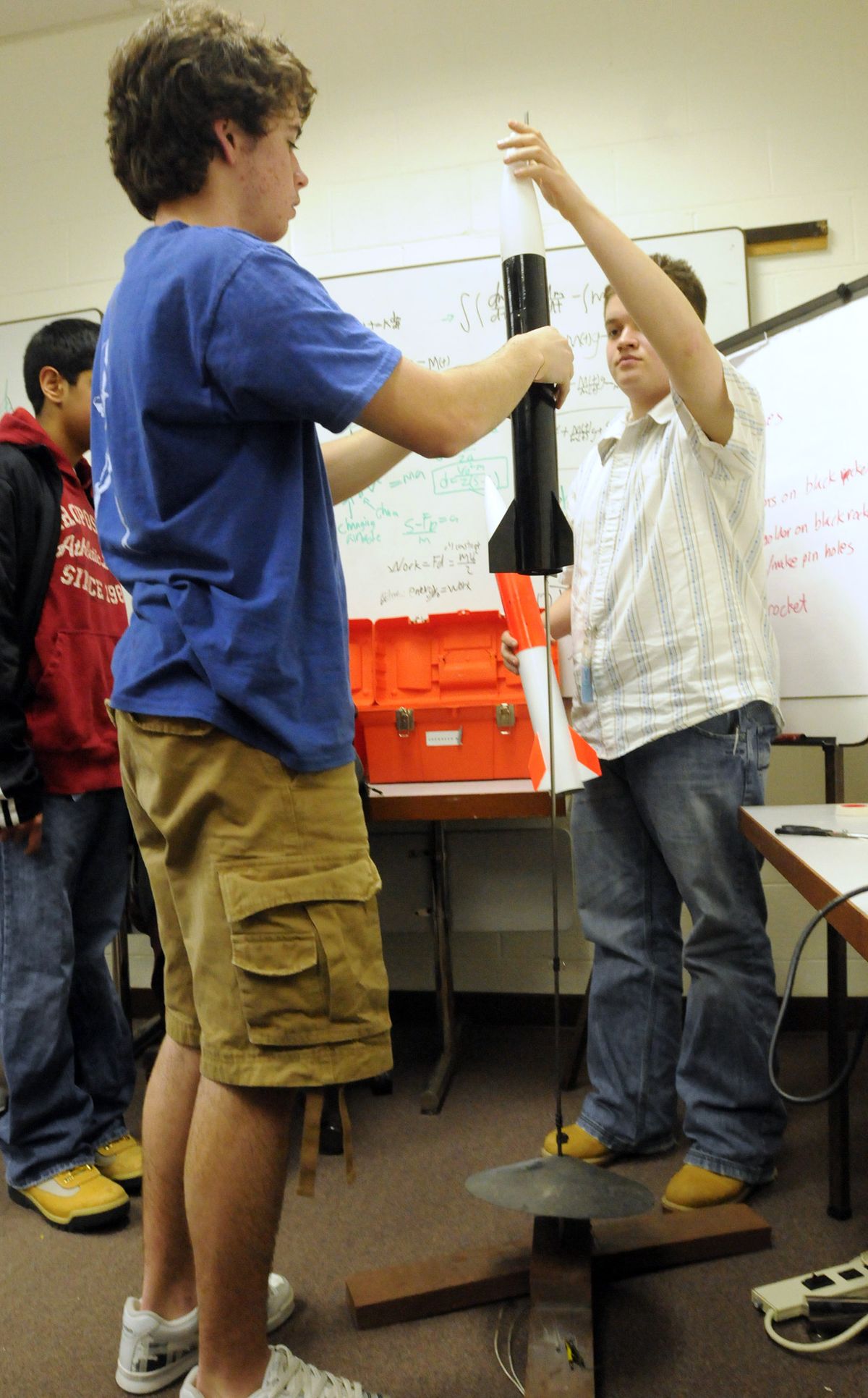Young brainiacs are in demand
Despite the struggling economy, future remains bright for engineers

We need engineers. Lots of them. Even in this economy. And even more next year, the year after that and probably for as long as kids sit in classrooms, patients get surgery and people shop in stores, travel by car, plane and train and expect water to come out of their faucets when they turn the handle. You name it, we need engineers to figure out how to build and design it and, while they’re at it, improve it and use less energy.
There are so many things we need engineers to do, there are more jobs than qualified people to fill them. It’s so bleak, engineering jobs were rated number one in Manpower’s 2008 Top 10 Hardest Jobs to Fill survey. Want to know where these jobs are? Read on.
First, why the shortage? Many engineers will be retiring and universities aren’t turning out as many graduates. There’s more demand because engineering issues have become extremely technologically advanced and specialized, and the need has “outpaced the available pool of candidates graduating,” says Rob Steward of LatPro, a job board specializing in Hispanic and bilingual professionals. Add to that the “strong focus on improving environmental and green standards and the push to alternate energy sources.”
So if you’re inclined to take things apart just to see how they work and then figure out how to make them work better, and if you enjoy new technology, here are careers that might fit you well.
Industries needing engineers include aerospace, government and research, manufacturing, defense, universities, transportation, healthcare, high-tech such as software development, animation and manufacturers of more fuel-efficient cars, Steward said.
Cities and municipalities need engineers to improve roads, buildings and water systems. Oil and gas companies need field engineers, and health care systems and research firms need design engineers, says Shelli Crockett of the College of Engineering at Texas Tech University. The not-so-obvious jobs are in companies like Liberty Mutual, Louis Vuitton and JP Morgan with titles such as solutions engineer, Steward said.
At Trane, worldwide manufacturer of heating, ventilating and air conditioning systems, the North American business employs about 1,100 sales engineers. This is a hybrid role using technical and engineering skills, sales expertise and business savvy to “consult on technologically and scientifically advanced systems and complete solutions,” president John Conover said.
These engineers help school districts design environmental systems for buildings that reduce noise and save energy and costs, Conover said. They work with hospitals to create surgical suites with precise temperature and humidity control. He points to the need for energy engineers in the commercial building industry who analyze energy use and design conservation measures to make buildings more efficient.
Then there’s a need for a group loosely called “financial systems engineers,” says Seshu Desu, dean of Thomas J. Watson School of Engineering and Applied Science, Binghamton University. “We have heard from the financial sector that increased regulation will create opportunities on the technology side of the business” to “inevitably implement the system of checks and balances.”
The biggest projected growth is for computer software engineers in applications and systems software, environmental, biomedical and industrial engineers, cites the U.S. Department of Labor.
“Industrial engineers are needed more than ever in tough economic times because they re-engineer business practices to make them more efficient and competitive,” says Laurence Shatkin of JIST Publishing. Note that computer software engineering jobs are also held by computer scientists.